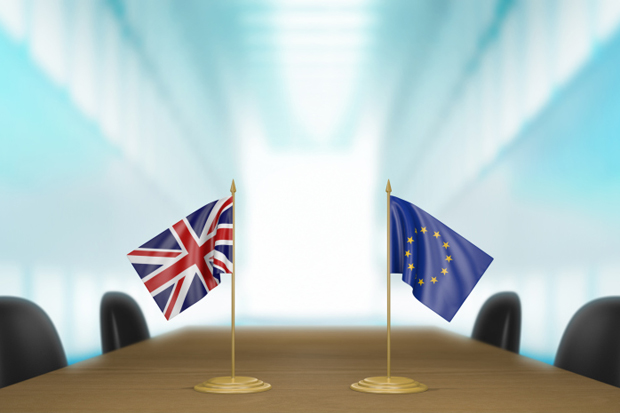1. Leaving the EU would hurt the UK’s ability to trade with it.
The fearmonger’s favourite argument. But fear not: the global economy has changed dramatically since Britain joined the EU in 1973, seeking entrance to a common market. The World Trade Organisation has brought down tariff rates around the world; even if we didn’t sign a free-trade deal with the EU, we would have to pay, at most, £7.5 billion a year in tariffs for access to its markets. That’s well below our current membership fee.
2. Three million jobs will disappear.
A bogus figure, heard often from the likes of Nick Clegg. It dates back to a 2000 study from the National Institute of Economic and Social Research, which calculated the number of people whose jobs are linked to exports to European consumers. Would demand for these exports vanish if we pulled out of the EU? Of course not.
3. The City will decamp to Frankfurt.
Sound familiar? That’s because the exact same claim was made ten years ago when some in the Square Mile tried to bully Britain into joining the euro. The City has been able to thrive without us joining the single currency; three-quarters of Europe’s financial transactions take place in the UK. Indeed, 40 per cent of all transactions denominated in euros take place in Britain. With corporation tax of just 20 per cent and flexible labour laws, the UK is already a magnet for companies. That won’t change.
4. Human rights will disappear.
Given that Britain invented the idea of liberty and exported it to the world, we’re the last country to need EU membership to show that we respect human rights. Our tradition of human rights may anyway be codified by a UK Bill of Rights, whether or not we remain in the EU.
5. Pensioners living in Spain will have to leave.
Thanks to international ‘grandfather rights’, Brits living in other EU countries will continue to enjoy the same rights and freedoms that they had under the old system. The same is true for the 400,000 French people living in London to avoid President Hollande.
6. Universities will lose their funding.
Yes, there are plenty of EU grants for universities — but because the UK is a significant net contributor to the EU budget, there would be plenty of money to keep these grants going. Leaving the EU would also end the anomaly whereby Scottish universities charge fees to English students but not to students from the Continent. All non-Scots could be charged — if the SNP wished.
7. British farmers will lose their subsidies.
The Common Agricultural Policy may be horribly wasteful — but it’s also undoubtedly popular with some farmers. Money saved from our EU fee would leave plenty to give to farmers and, unlike EU subsidies, British ones could be linked to farm productivity. Crucially, supermarkets would be free to import the best food at the best price worldwide — without having to slap on a morally indefensible EU tariff. Such tariffs currently cost £400 per household.
8. Planes will fall out of the sky.
This was depicted as a possible scenario in a recent BBC television drama. But leaving the EU will not mean the end of its Single European Sky programme, which is open to countries outside the EU, including Switzerland and Norway.
9. The lights will go out.
The EU’s energy arrangements are one of many global agreements; Britain will remain a member of all the international energy bodies — including the International Energy Agency, which helps to co-ordinate energy policy among the developed world. We’d remain in UN climate change negotiations, but we’d no longer have to be part of a ‘Team EU’. And we could still be a part of EU energy projects.
10. The third world war will break out.
Usually the last resort of the desperate Europhile, suggesting that UK withdrawal is edging towards anarchy and violence. But leading historians have rubbished the idea that the EU has been responsible for peace in Europe. (Nato has been far more important.) Don’t respond to this claim, just switch on a news channel and show your friend what’s happening in Greece…
Got something to add? Join the discussion and comment below.
Get 10 issues for just $10
Subscribe to The Spectator Australia today for the next 10 magazine issues, plus full online access, for just $10.
Oliver Lewis is a contributor to Change, or Go: How Britain Would Gain Influence and Prosper outside an Unreformed EU.
You might disagree with half of it, but you’ll enjoy reading all of it. Try your first month for free, then just $2 a week for the remainder of your first year.















Comments
Don't miss out
Join the conversation with other Spectator Australia readers. Subscribe to leave a comment.
SUBSCRIBEAlready a subscriber? Log in